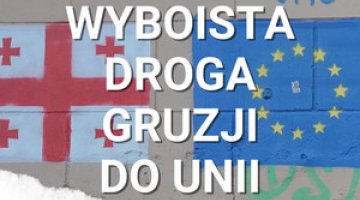A split in the Georgian opposition
The United National Movement (UNM), Georgia’s largest opposition party which governed the country during the presidency of Mikheil Saakashvili (2003–2012) underwent a split on 12 January. The parliamentary faction of the UNM is formed by twenty-seven deputies and twenty of them have left. Those who left the party were led by the key politicians of this grouping – David Bakradze, Giga Bokeria and the former mayor of Tbilisi, Gigi Ugulava who was released from prison early. They accused the former president of causing divides in the grouping and announced that an opposition pro-Western political movement would be established. Only seven deputies loyal to former president Saakashvili, who now lives in Ukraine, have remained in the parliamentary faction of the UNM.
Commentary
- The conflicts inside the UNM began escalating when it lost power in 2012 to Georgian Dream, the party created by Bidzina Ivanishvili. One of the consequences was Saakashvili’s emigration. The new government issued an arrest warrant against him, so he settled in Ukraine and became engaged in politics there. He was making attempts to control the grouping from abroad, so the resistance of the party leaders in Georgia grew. The conflict reached its apogee after another parliamentary election was lost (October 2016). In the first round, the grouping garnered 27% of the vote (Georgian Dream 48.6%). Then Saakashvili appealed for a boycott of the runoff (which was held in most of the single-member constituencies), claiming that the election had been fixed. Contrary to Saakashvili’s stance, the domestic leaders decided that the party would take part in the election and announced after the election that the UNM should play the role of the constructive opposition. They also opposed holding a party convention scheduled by Saakashvili for 20 January.
- The split which has weakened the opposition plays into the hands of the Georgian government, which most likely contributed to it (Ugulava’s early release from prison, to become the leader of the splinter group). The new situation is strengthening the power monopoly which Ivanishvili’s party currently has. The split seems to be an effect of the political realism of the opposition leaders in Georgia who, given the sweeping victory of Georgian Dream, Saakashvili’s declining popularity among Georgians and the lack of chance of his return to Georgia, came to the conclusion that keeping the former president as their leader harms the interests of their party. It appears that the split will result in Saakashvili becoming increasingly marginalised and in the UNM being depleted. The new party will take its first test during the local election this year. Ahead of this it will most likely have to vie with Saakashvili’s party for the party’s local structures. It is difficult to predict whether the new grouping will participate in the Georgian political scene for long. Although it may count on support from a large group of voters who are opposed to Georgian Dream and at the same time did not accept Saakashvili as leader, the splinter group seems to have little chance in the local election because the government can use the administrative resources. New opportunities may arise for them in another parliamentary election, but it will be held only four years later.



